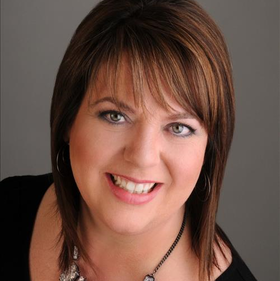First-time home buyers face a lot of challenges. You may be tired of living with rent, or eager to move from your parent’s home but you shouldn’t let the excitement push you into taking rash decisions.
Buying a home is probably the biggest investment that most people ever do in their life. There are many aspects that you must take into consideration when choosing the house that you want to buy: price, location (the distance to your workplace, access to public transportation), and the age of the building.
Sometimes you can buy a new construction in an area outside of the city, or a home in an older building near the city center. What are the most important things for you? How do you make sure you get the best home for your money?
To help a first-time home buyer answer all these questions we reached out to 25 real estate agents and asked them to reveal:
What’s the Most Important Advice You Would Give to First Time Home Buyers?
These realtors shared with us their experience and referred to all the aspects mentioned above and more. You can read their opinions below.
In no particular order…
1. Donna Boruck – DonnaBoruck.com
First Time Home Buying, how do you know if you are ready? You generally start thinking about buying your first home when certain achievements have been attained. You are in a position where your income is relatively stable and you feel comfortable committing to mortgage payments.
You could see yourself staying in the city or town you find yourself in for at least the next few years. You want to start putting down some roots, investing in where you live and personalizing your living space.
Getting started, there is no point starting to look for a place without having your mortgage pre-approved. One of the best tips for first-time home buyers is to know your financial comfort level, not just what you can be approved for. Have more than just the required down payment on hand. There are closing costs to cover including taxes, legal fees, home inspection, adjustments as well as all the little extras you’ll need for your new place.
Assemble a team you can trust, Real Estate Agent, Lender, Lawyer, Inspector. Ask friends and family for recommendations or interview candidates to be sure you are a good fit. Often one professional can refer to a group of trusted advisors. This can help simplify the process and get you off to a good start.[1]
2. Joel Flewelling – David Dunn
When buying your first condo, the very first thing that needs to be done is to meet with a mortgage broker and find out how much of mortgage payments you can afford. That way, you can start looking for homes that are within your budget. There’s nothing worse than starting to look for a property that you fall in love with only to find out you can’t afford to buy it. Make sure that the real estate agent or broker knows of any incentives or programs available for first-time home buyers.
Also, it’s extremely important to know what type of property you are looking for in particular. Once you’ve decided, meet with an agent that can make suggestions for properties that fit within your parameters.
It’s extremely important to have a real estate agent that you’re comfortable working with and that you trust with helping you make one of the most important decisions in your life!
Also, make sure you are aware of all costs associated with buying your first home, such as the closing costs. Costs can vary from province to province and you never want to be in the position of finding out there are extra costs that you were not privy to on closing day!
3. Mariko Baerg – Bridgewell Real Estate Group
Get pre-approved and talk to a mortgage broker/bank — these should be the first steps for a first-time home buyer because it will give them direction on what their true budget is. First-time home buyers must obtain this information as soon as possible, as it is key that they are aware of all of the costs associated with home ownership so that they can proceed with a comfortable and realistic budget based on their lifestyle.
During this process, the mortgage broker will also estimate closing costs, which is essential for a first-time home buyers to be fully aware of so that they are prepared to close come the completion day.
Furthermore, a mortgage payments calculator won’t take into consideration whether you’re self-employed or on a salary, where your credit score stands, and other important factors that can affect affordability. To avoid disappointment and wasted time, a buyer should get pre-approved before they start looking at places to ensure that they know exactly what they can afford comfortably. Consider getting a credit report as well since it can save money in the long run.
Another benefit when you get pre-approved is that you’re able to lock in the interest rates for typically 90-120 days. With raising interest rates set to continue rising in Canada, locking in an interest rate sooner rather than later can result in hundreds of dollars saved on a monthly mortgage payment. If a buyer completes within that rate hold period but the rates have risen, they will still be able to purchase at the held rate rather than the current rate.
4. Rebecca Kopel – RoyallePage.ca
5. Jamie Blades – Homicity

When you get pre-approved with your mortgage payments, it will feel more than a milestone in the home-buying process especially for first-time home buyers. It is a necessary step they need to take before they start searching for a home for two reasons: to know how your home buying budget and to make the offer right away.
Knowing how much you can afford narrows down your search. With a pre-approval, you will not be tempted to ask for a larger mortgage loan if you find a property that has everything you want, but the listing price range is out of your budget. Once you get pre-approved, the mortgage sets the limits you need to find the right home at the best possible purchase price.
Sellers usually have several offers on the table, and yours might be rejected without a pre-approved mortgage. When you get pre-approved you are showing the seller that your credit history is clean, your finances can take on a mortgage, and you are ready to sign the agreement of purchase and sale. The house or condo that checks everything off your list might be gone, or it might be lost in a bidding war if you are not ready to show that you are a suitable candidate
6. Dorothy Mazeau – DorothyMazeau.com
The most important step in purchasing your first home is to talk to a Mortgage Broker and have a full pre-approval evaluation done, including proof of income, creditworthiness, and debt load you are currently carrying. Insist on this being a thorough review, which is somewhat time-consuming; some lenders won’t want to go through the full process until they are at the stage of approving a mortgage on a specific property – which is too late! To avoid any unpleasant surprises, insist that this be done early on.
A Mortgage Broker is more likely to be willing to do this for you than an individual bank or another single-source lender. A Mortgage Broker has access to a wide range of mortgage products and a good one will be willing to do the work to get you a real pre-approval based on the dollar amount of the mortgage you qualify for.
Once you know the value of the mortgage you qualify for, you can go shopping. Only look at properties you know you can afford, based on this amount. Beyond that, you will be seeking the right balance of location, the condition of the home, and the features it offers. Keep in mind that this is your first entry into the housing market; your dream home may be somewhere down the line.
7. Michael Kelczewski – MichaelKelczewski.com
First and foremost, isolate a top list of factors ranked providing clarity throughout the home search. Oftentimes, many are left confused after touring many houses and being bombarded by information. I strongly suggest fully understanding the community as many seek comfort through neighborhood connections.
Start pounding pavement by attending open houses and researching neighbourhoods. If possible, request a neighbour introduction while verifying commuting distances. Once an area becomes isolated, begin to consider must-have home features and amenities. Perhaps a large yard ideal for hosting or a morning room perfectly suited for long Sunday mornings ranks highly.
Creating a reference list decreases information overload and serves to familiarize during property tours. Be prepared to move rapidly to purchase, so it’s best to be fully financially approved as “the” home could easily be lost to competitors.
Lean on your agent for professional references; aside from what you’ve heard, agents act as ministerial fiduciary placing your needs above theirs. Be ready to solicit quality home inspectors /contractors who typically work in conjunction to assure a home’s condition.
8. April Palomino – My Orlando Dream Home
I think of everything I could advise a first-time home buyer, the most important thing would be to get a home inspection. Home inspection is one of the most important steps in the home-buying process in my opinion. The cost is incurred by the buyer but I find the information is invaluable. A Home inspector is a professional who is trained in examining the structures and major components of the home such as plumbing, the roof, and the electrical system. The report will cover the condition of these systems and any recommendations for repair or replacement that are needed.
For most people purchasing a home is the largest investment that they make; you do not want any surprises; as they can be costly. As long as they asked for a home inspection contingency at the time they wrote the contract and followed the terms of the contract they can back out of the purchase should the inspection report uncover structural damage or issues with critical systems that would be too costly to the buyer to undertake.
There could be safety issues the buyer may want to address and the report will highlight these things so that the potential buyer is aware of them and can make necessary fixes. The inspection can uncover illegal additions to the property or components that were not done to the building code as well. This can pose a problem for the buyer in the future and ultimately leave them responsible for these issues even though these were projects done before the purchase.
There are a lot of things that first-time home buyers need to be aware of but to me, this is the single most important one. It will save them from future grief and unwanted legal actions.
9. Michael Zschunke – Berkshire Hathaway Home Services
My greatest piece of advice for first-time homebuyers is to… “Get your financing in order first and foremost.” You’ll not only want to know how much house you can afford with a Pre-Qualification but you’ll also want a Pre-Authorization.
A PreQual only states what the bank thinks you can afford but a Pre-Authorization is more of a guarantee that you will be able to get the home loan. When making an offer this lets the seller know that you are more likely to be able to close the deal, therefore, making it more likely that they will accept your offer.
My second piece of advice is…”Don’t get in over your head.” Purchasing a home is the easy part financially for many first-time home buyers. Remember that a home comes with maintenance and other costs that can add up rather quickly for those on a limited budget. Being a homeowner means that you absolutely must have a rainy day fund for repairs etc when your furnace goes out in the middle of a cold winter night.
10 .Randy Mintz – Mintz Home
Buying a home can seem complicated – but it’s not. There are fundamentals that first-time home buyers may not know – but only if they haven’t done any research. Here’s my take:
1. Get pre-qualified for a home loan before you go shopping. I’m a Millennial, so I can tell you that lots of young people, especially, think they can just saunter out and buy a house. But knowing how much the bank will lend you will be a major determinant. It’s ok to have an idea of what you want, but since most people can’t buy a cash home, that loan is going to be critical. It might as well be your first step.
2. To get the best deals, use an agent. Agents have access to listings before anyone else. An experienced agent will also know the true value of a property – and whether the purchase price is on point, or off base. They will be able to give a big picture assessment on a property – help you identify things like “deferred maintenance” items to watch out for (Will this beautiful home that you love need a new roof within the next 3 years. Not a reason not to buy it, but the factor that into your likely near-future costs.)
3. It’s not all about the asking price. Many people don’t realize how many aspects of a sale can be negotiated. Can’t get your purchase price? Look for other points of negotiation that could have you walk away happy with a new home. It’s a big mistake to focus on purchase price alone.
11. Lauren Hazelett – Your North West Home
I think the biggest thing first-time home buyers need to know is the process. There are a lot of moving parts in a Real Estate transaction and it can be overwhelming. A good Realtor can help you manage your timeline and provide great referral partners but half the first-time home buyers I work with have no idea what is Escrow or why they are putting Earnest money to Title company XYZ other than their agent, Lauren Hazelett told them to. That takes a lot of blind trust. I rather prefer that they are informed in knowing how all the steps to this project go together.
I think it’s important to outline at a high level, so as not to overwhelm everything in the process, and who is involved.
– Pre-qualify – Mortgage Broker
– Shop- Real estate agent
– Offer/counter offer…- both buying and selling Realtor
– In contrast- both Realtors and seller
– inspections- Realtor/ Inspectors/ Specialist (Geo-tech, sewer scope ……)
– Closing – the party: Realtor, Mortgage, broker, escrow officer, and notary.
Once you know the process, it becomes a lot more simple. I am not saying there is nothing else to know, but that’s why you pick a good real estate agent. And why not, you’re not paying for your agent, it usually comes from the seller’s profits so get yourself the best agent you can, and have fun don’t be discouraged and know the experience is different for everyone, every time.
12. Tania Matthews – TaniaMatthews.com
Make sure they do a consultation with their agent and work with them to find a strong mortgage lender to get pre-qualified.
That way, they can be educated and understand the entire process, and know what they can or can’t afford to purchase.
A mortgage lender can make or break a transaction and it’s important to find a great one.
13. Mark Steele – Steele Coaching and Consulting
HGTV has influenced most of my clients to believe that the home-buying process should be done in three showings. If they see three homes and, by some chance, none of them work for their needs, we either have to choose one (because the TV says that one of these three is perfect) or cancel the process and wait to see another three in the future.
The truth is, the home-buying process can be long, and sometimes it should be. Time on the hunt can be reduced by the buyer being transparent and realistic about their needs; considering everything from proximity to work, children’s school, entertainment, and most importantly, their budget. But not every home will be perfect, and often it takes seeing 5-10 to understand what the options are and make an educated decision.
On the topic of budget, I have had a lot of clients shy away from making renovations on their homes because of the HGTV-produced stigma that if you try to make a renovation, something will go wrong; there will be a family of rats and raccoons in the attic, or there will be mould behind the drywall.
While it is best to be cautious, and budget additional time and money for setbacks, I have seen many renovations done seamlessly.
14. Eric Sztanyo – Team Sztanyo
There is a lot to consider as a first-time home buyer, and it can be completely overwhelming. You have to learn about the entire process, get approved for a loan, fight against other buyers in a competitive seller’s market and so much more.
Because so much of it is unknown and unfamiliar, I would say the MOST IMPORTANT advice for a first-time home-buyer is to choose a real estate agent who is both knowledgeable and someone you would enjoy working with when buying your home.
Buying a home for the first time is an emotional roller coaster. Make sure you have the right professional along for the ride!
15. Earl White – House Heroes
Not Paying Attention to “Days On Market”. Home buyers want to buy at a fair purchase price. There is a tendency for prospective homeowners to look only at the sale prices of comps. However, this sets the buyer up for purchasing in a declining neighbourhood. Whenever looking at a comp, buyers need to look at the “days on the market”. Houses in the neighbourhood sit on the market for a long time before selling signals low appreciation potential (or worse, an incoming depreciation).
Only Submitting A Few Offers At List Price. Home buying is a numbers game. You need to submit plenty of offers to find a good deal. That means offering on all suitable properties (even below the list price). It is common for properties to sell well below asking. Follow up once a month with the seller and re-iterate your interest rate. Soon or later, when the seller gets more reasonable, you will be one of the few buyers still paying attention.
Not Asking For a Reduction After Inspection. Home sellers often describe their property’s condition as much better than it is. A good inspection often reveals unanticipated defects. Don’t be afraid to ask for a reduction. Prospecting buyers sometimes hesitate because of the concern about losing buying opportunities. In reality, sellers give plenty of reductions upon request – even tens of thousands below the initial offer. There is no downside to asking – and you can still proceed if they say no.
When Can’t Offer Higher Price, Offer Better Terms. Although the offer price is the first thing sellers look at, it is not the only thing. Terms are important. Consider giving the seller favourable terms if you’re not the highest offer. You can improve terms by using the seller’s escrow agent, reducing the inspection period, increasing the earnest money deposit, sooner closing date, and limiting appraisal and financing contingencies.
16. James McGrath – Yoreevo
In my opinion, the most important thing many first-time home buyers overlook is taking a hard look and evaluating whether they should be buying in the first place.
A lot of people decide they should buy because they can now afford it, just got married or reached some other milestone. However, equally important is whether your home of today is likely to be your home of five years from now. If you might move, have a kid (or one too many kids) or anything else that would make your current living situation no longer suitable, you shouldn’t buy – transaction costs are too high, not to mention the time it takes to buy a home.
Step one for any buyer is thinking through scenarios where they will be forced to move and deciding if it’s the right time to buy.
17. Will Friedner – The Montana Life Realty
I believe there are two main things that a first-time home buyer needs to focus on before their purchase. The first thing they should do is sit down with a lender. A lender is going to tell the buyers exactly where they stand financially. If they want to buy a home with bad credit, the lender can help them with credit repair.
The lender will be able to tell them exactly how much they will qualify for on a mortgage. They will also go over the different types of loans and how much they will need to come up with for a down payment. Every first-time home buyer should have this information before they even start looking at homes.
Selecting a good agent is the second big thing that a first-time home buyer needs to focus on. A good agent can make or break a deal. First-time home buyers should take their time with this selection and be sure to interview several agents. They should make sure that their agent has sold homes in the area that they are looking for. The agent should have experience with the type of home that they are purchasing.
A first-time home buyer should have an agent with the expertise to ensure a smooth transaction. The agent should be in the real estate business full-time. This is not the time to have an inexperienced agent, there are too many things that can go wrong and a good agent will have the experience to point the buyers in the right direction.
18. Cornelius Charles – Dream Home Property Solutions
The most important advice I would give to first-time home-buyers is to fully understand all of their financial obligations. Many home-buyers look for homes that are at the max of what they are pre-qualified for.
For example, if they are pre-qualified for $400,000, they look for homes that are priced close to $400,000. We like to tell first-time home-buyers that just because they are qualified for that amount, that doesn’t necessarily mean that they can or should afford that amount.
Potential home-buyers need to look at all of their monthly expenses to see how big of a mortgage they can afford. A good indicator is to look at how much you are currently paying in rent and compare that to what your financial status would be with your new mortgage.
19. Keri Shull – KeriShull.com
Start with one of the funniest parts: List everything you need and want your new home to have.
List them in order of importance, starting with what you need and working your way down to the things that would be nice to have.
Maybe for your first home you won’t be able to find that inground pool or pool-sized Jacuzzi you’ve always dreamed of, but maybe you can find those beautiful hardwood floors or that location that cuts your commute in half.
As you tour homes in your purchase price range, add to this list of wants and needs. Sometimes you don’t know what you want until you see it.
20. Daniela Andreevska – Mashvisor
Here is some advice for first-time home-buyers in any market:
1. Check out the price-to-rent ratio in your location’s housing market.
This is simply the average property price divided by the average annual rent in the market. If it’s low (15 and below), it is financially sound to buy a home rather than rent a property. However, if the ratio is high (above 16 or especially anything above 21), it might make more sense to keep renting for the time being as properties are just too expensive to buy at the moment.
2. Make sure you have figured out your finances and can make the mortgage payments
While we are all attracted by the idea of buying and owning a home, you should make sure you can afford it. Ask yourself questions such as “Do I have the money for a down payment?”, “How will I cover the monthly payments?”.
3. Choose your neighbourhood carefully
Location is of key importance in real estate, and location is not limited to the city only. Neighbourhoods vary drastically, so you should find one which is affordable but also caters to all your needs as a homebuyer.
21. Ralph DiBugnara – HomeQualified
First-time homebuyers don’t want to feel like novices in the real estate game.
Approval First, Shopping Second
Before you shop, know what you can spend. We recommend seeking a mortgage preapproval before looking at properties. Buyers need to know how much they qualify for and what their estimated monthly mortgage payment will be. Nothing is worst than finding your dream home only to then find it’s out of your purchase price range.
Hire A Buyer
Be discerning in your search for representation. Ultimately, you are looking for an agent that specializes in helping buyers. In addition, you want this person to be familiar with the neighbourhoods and home types you are searching for. There is no price for expert advice.
Cash Poor
No matter how perfect a home is, do not drain your resources trying to make it yours. There are almost always unforeseen costs to consider. Leaving yourself financially strapped means leaving yourself financially vulnerable. Do not buy a home that compromises your ability to afford a cushion. Most of all, no address is worth the stress associated with being cash poor.
Just Say No to New Credit
Finally, it is essential that no additional credit is taken or debt on board during the mortgage process. Consequently, disaster can ensue and your purchase could be compromised.
Prospective home buyers should avoid new credit card applications. The credit score would be just one reason that you wouldn’t want to take the risk, especially if you have prior credit card balances.
22. John Powell – Help-U-Sell Real Estate
1. Don’t skip a proper home inspection with a professional inspector only to discover major problems with the home after moving in.
2. Don’t skim the governing documents of the community if restricted or a HOA.
3. Shop for the best loan program with the best fees and interest rate
4) Work with an experienced realtor to help avoid all of these problems.
23. John Bodrozic – HomeZada
Many first-time home buyers have told us they should have prepared themselves for various aspects of home management, as there are myriad details to stay on top of when managing a home. A home can quickly become a money pit and many first-time homeowners are not organized or prepared to manage the details. Here are a few examples:
1. Have a preventative maintenance calendar. There are a lot of small, monthly tasks that you need to do that are often seasonal to make sure your home is operating efficiently, and you are preserving the life of various equipment, appliances and building materials of the house. Forgetting or not knowing about these preventative maintenance tasks leads to larger, unexpected fix-it costs as things break before they should, and your energy bills go up because the house is not operating efficiently.
2. Have a digital home inventory of all your personal property and the fixed assets of the house. Every insurance company recommends this but most first-time homeowners forget. This is important because it helps make sure you are properly insured when comparing against your home insurance policy coverages, and if some natural disaster or other house fire were to destroy the home, you have all the digital information to prove your claim and get reimbursed.
3. Many people will buy their first house with a few remodel projects they want to do and they end up way over budget. It is important to itemize your project wishlist and develop a realistic budget for each item on the project, as there are many product and brand differences which can quickly blow your budget.
It is also important to track all your actual costs, receipts, warranties, before and after photos, etc. because you will need these at tax time, and it will be extremely valuable information down the road whenever you decide to sell your first house.
4. Your first home is probably your largest asset and biggest expense. It is important to get updates on what your house is worth (markets fluctuate), know your full mortgage schedule so you always know the remaining balance, and thus track your portion of the home equity.
You want your equity to grow both because hopefully the value of your house is growing because of the market, and your mortgage balance is shrinking as you make those monthly payments. It is also important to budget for regular household expenses like utility bills, property taxes, home insurance, and any other home-related expenses.
24. Thomas Kutzman – Prevu
You will need more than just a down payment when buying a home.
Your savings plan should also include the amount of money you’ll pay in additional closing costs, including mortgage fees, title insurance, property taxes, legal advice, and other transaction-related costs.
25. Craig Mracek – Keylo
1. Separate Deal Breakers from Wants
Before you go to view your first home, have a list of deal breakers. If a house is missing any of these, walk away. This lowers the risk of an impulse buy on a new home that feels perfect but is missing something critical. Have a large family? A 1-bedroom condo is probably a deal breaker. This applies equally to purchase price, especially with the closing costs attached. Set a purchase price ceiling where you walk away in case you end up in a bidding war. This helps take the emotion out of the process and keeps you in control.
In a separate list write down all your wants. You want to cross off as many of these from your list as possible, but missing one of them won’t be reason enough to walk away. A commute to work in under 15 minutes would be nice but may not be a reason to walk from a home that fits all your needs and most of your other wants.
2. Talk to the Owners
Not every owner will want to speak with you in person (they have a Realtor for a reason). Wherever possible talk to the owners to learn what you can’t always see, hear or smell. Most homeowners have an emotional attachment to where they lived and will be more than happy to fill you in on the benefits (and sometimes even the drawbacks) of their neighbourhood. Homeowners have a legal obligation to be honest if you ask pointed questions. They can’t hide a known defect so ask plenty of questions! Their problems may otherwise soon be your problems.
3. Location, Location, Location
There’s a reason for this adage. The location of your home is tied to more than just purchase price. This is where you will spend the majority of your time since your goal is to save money while maximizing benefits. The neighbourhood will indirectly affect your safety through crime rates, happiness through access to local facilities, and much more.
Think beyond commute times and whether it is the latest area to be gentrified. Imagine yourself eating, breathing, and sleeping in that area. The right Realtor will have local knowledge about your potential new neighbourhood. If you don’t already have an agent, choose a referral service that will match you to someone local that you can trust.
4. Leave Inspections to the Professionals
Even if you work in the trades, chances are that you don’t know everything about every trade. Spend less time worrying about the quality of the foundation and more time focused on your deal breakers and wants. These are within your control.
Pay for a professional home inspection and don’t waste your time worrying about what’s in the walls since you don’t have the skill to accurately identify problems. Should you keep an eye out for obvious signs of neglect and poor maintenance? Of course. Otherwise, leave the inspections to the professionals.[2]
Some Final Words
Thanks so much to all the realtors that shared with us their advice for first-time home buyers! Hope now you know what you have to do and it will be easier and less stressful to search for your dream home.
If you are searching for a condo in Toronto (or anywhere else in Canada), check out our offers. Contact us for more details and we will be happy to help you find your new home.
Reference:
1 https://www.cmhc-schl.gc.ca/en/buying/condominium-buyers-guide/chapter-4-buying-a-condominium
2 https://globalnews.ca/news/2576822/hiring-a-home-inspector-here-are-6-things-to-remember/

























